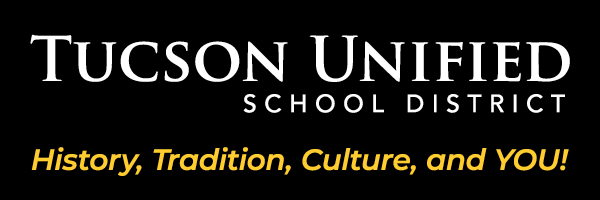Cultivating Learning in Tucson Unified's School Gardens





It all began in 2009, when a University of Arizona undergraduate intern and a faculty member partnered with a Project MORE class and the Community Food Bank of Southern Arizona to support a school garden. Since then, the UA School Garden Workshop (SGW) has expanded to work with 70 TUSD schools, many in underserved neighborhoods.
UA SGW places interns at schools, and they support the installation, maintenance and enhancement of the gardens, as well as assisting site coordinators, teachers and students in using the outdoor spaces as an extension of the classroom.
Tucson Unified teachers have the opportunity to earn professional development credit by attending the Green Academy, a Garden-Based Curriculum Integration program, where they learn grade-appropriate and subject-specific garden-based lesson plans. Green Academy workshops are hosted in the fall and spring at Manzo Elementary School, which was one of the UA SGW’s first schools.
Collaboration is an integral part of the School Garden Workshop’s success. The UA SGW’s Food Literacy Program team, which works out of Manzo, partners with TUSD Food Services for the Garden to Cafeteria initiative. Students harvest produce from their school gardens and the Food Services staff serves the veggies as part of lunch. Research shows that children who participate in the gardening and harvesting process eat, on average, a half serving more vegetables per day than they did before. Though it seems small, it can have a big impact, especially on children who live in lower income neighborhoods where fresh produce may be hard to come by.
Garden to Cafeteria events have been held this semester at Drachman Montessori, Ochoa Elementary and Wright Elementary. Food Literacy Program Coordinator Stacy Evans says students are excited to try all the items they’ve been growing. “They planted them, taken care of them, they’re learning about the nutritional benefits of it, and then at the end they get to taste it so the students really get to engage with the fresh fruits and vegetables in their lunch and get to recognize those things and they end up consuming more of them.”
The Food Literacy Program also provides meal kits to students, where they get to watch a live demo before taking their kits home to prepare dishes made from veggies harvested from the school gardens and other locally-sourced ingredients.
The district's school gardens provide fresh food for the school cafeterias, while the cafeterias give back to the gardens as part of a pilot project that's funded by the U.S. Department of Agriculture (USDA). The program is providing 11 TUSD schools with infrastructure and programming to provide compost to gardens through collaborations with the UA SGW and UA Compost Cats. So far, the district has collected more than 500 pounds of food waste from cafeterias, produced more than 100 cubic feet of compost for school gardens and hosted two professional development workshops on composting.
If you'd like to support Tucson Unified's school gardens, you can make a donation to the UA School Garden Workshop. You can also stay up-to-date on the latest happenings on the UA School Gardens and TUSD Food Literacy Program Facebook pages.
Brought to you by:



